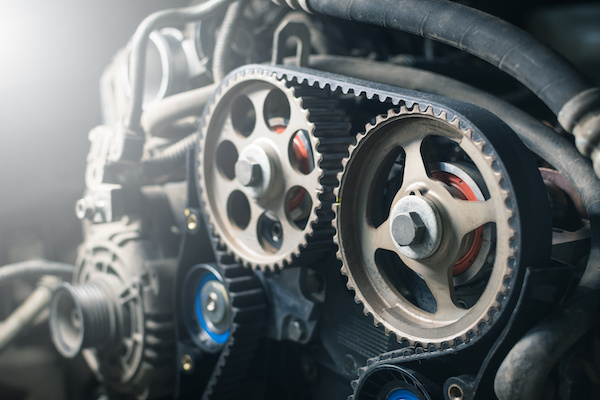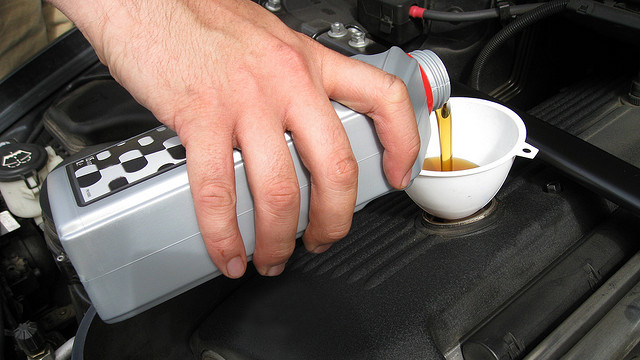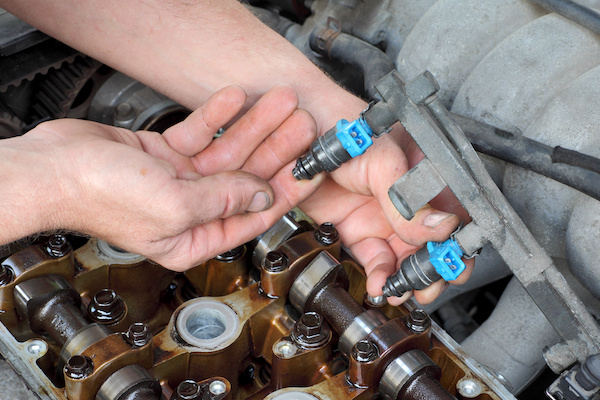Posted on 1/12/2025

Why Does My Car Shake at Idle? | Grand Garage Is your car shaking when it’s idling? At Grand Garage, located at 1556 E Grand Ave, Escondido, CA 92027, we understand how frustrating and concerning this issue can be. Your car should run smoothly, and excessive vibrations at idle often indicate an underlying problem that needs attention. With decades of experience in automotive repair, our team is here to help you identify the cause and get your vehicle back to optimal performance. Common Causes of Car Shaking at Idle When your car shakes at idle, it’s often a sign that something isn’t functioning as it should. Here are the most common culprits: 1. Engine Misfires A misfiring engine can cause your car to shake. This happens when one or more of the cylinders fail to ignite properly. The reasons for misfires can include: Worn Spark Plugs: If your spark plugs are old or damaged, they may not ignite the ... read more
Posted on 11/25/2024

Do I Need a Good Relationship with My Mechanic? Absolutely—Here’s Why When it comes to maintaining and repairing your car, there’s one thing that often gets overlooked: your relationship with your mechanic. Sure, it might seem like a simple transaction—you bring your car in, they fix it, you pay, and you leave. But in reality, it’s much more than that. Having a strong, honest relationship with your mechanic is essential, not just for the health of your vehicle but for your own peace of mind. After all, your mechanic plays a vital role in ensuring the safety and reliability of the machine you depend on every day. Let’s dive into why this relationship matters and how you can make it work for both parties. Mechanics: Modern-Day Rocket Scientists First, let’s address a common misconception: mechanics are not just “grease monkeys.” Far from it. Modern vehicles are marvels of engineering, combining advanced technologies ... read more
Posted on 11/21/2024
.jpeg)
Finding the Right Auto Repair Shop Near You: Building Trust and Getting Quality Service When it comes to finding an auto repair shop or mechanic “near me,” it’s about more than just location. Sure, proximity matters, but if you’re looking to save money, maintain your car’s performance, and ensure safety, you need to build a relationship with a trusted auto repair shop or technician. Simply picking the closest mechanic isn’t enough if you want the job done right and at a fair price. Establishing a strong connection with an experienced automotive professional can make all the difference in your car ownership experience, especially for the long haul. In this guide, we’ll discuss what to look for when searching for a “mechanic near me,” how to identify a quality shop, and why trusting your technician is crucial. Why Finding the Right Technician is Key In the automotive industry, professionals are often called “technicians,&rdq ... read more
Posted on 11/11/2024
.jpeg)
Check Engine Light Diagnostics Near Me: The Real Story Behind Check Engine Light Diagnostics: Why It’s More Than Just Reading a Code You’re driving along, and suddenly, the dreaded check engine light pops up on your dashboard. It's that sinking feeling we all know, but what does it really mean? Some places offer a quick code reading for free, but what they’re giving you is only a surface-level answer. The code alone is like a single sentence in a novel—one small piece of a much larger, complex story about your car’s health. In modern vehicles, the check engine light is a signal that something is off within a complex network of systems powered by 20, 30, or even 40 onboard computers. Each of these computers, or control modules, is designed to handle specific parts of your vehicle’s performance, safety, or efficiency. These modules are linked together through tens of thousands of wires and sensors, all of which communicate in real t ... read more
Posted on 11/4/2024

How Often Should I Perform an Oil Change? A Deep Dive into the 3,000 to 5,000-Mile Interval Debate When it comes to car maintenance, few topics spark as much debate as the question of oil changes. If you’ve been a car owner for a while, you've likely heard the traditional advice: change your oil every 3,000 to 5,000 miles. However, recent advancements in engine and oil technology have led many manufacturers to stretch these intervals, with some recommending changes as infrequently as every 7,500 to 10,000 miles—or even longer. So, should you follow the classic 3,000- to 5,000-mile rule, or trust the manufacturer’s extended intervals? In this blog, we’ll unpack the reasoning behind the 3,000 to 5,000-mile recommendation, discuss why some experts prefer sticking to it over following manufacturer guidelines, and examine the potential benefits of sticking with this more frequent interval. The Origins of the 3,000 to 5,000-Mile Rule Historicall ... read more
Posted on 10/21/2024

The Role of an Auto Mechanic: A Deep Dive into Car Maintenance and Repair Introduction: The Lifeline of Automotive Health In today’s fast-paced world, automobiles have become essential for mobility, convenience, and livelihood. At the heart of every well-functioning vehicle is the expertise of an auto mechanic, the unsung hero who ensures our cars are safe, reliable, and running at peak performance. Whether it’s a simple oil change, a complex engine rebuild, or diagnostics on modern vehicles, auto mechanics play a crucial role in keeping vehicles on the road. In this blog, we’ll explore the responsibilities, skills, and tools required by an auto mechanic, as well as delve into the importance of preventive maintenance, emerging challenges with electric vehicles (EVs), and tips for finding a trustworthy mechanic. Who Is an Auto Mechanic? An auto mechanic (also called a car mechanic) is a trained professional who inspects, diagnoses, repairs, and main ... read more
Posted on 9/30/2024

Why Does My Car Keep Stalling? One of the most frustrating experiences for any driver is when their car suddenly stalls. Whether it happens at a stoplight, in the middle of traffic, or while cruising down the highway, a stalling engine is not only inconvenient but can also be dangerous. If you’ve been experiencing frequent stalls, it’s important to get to the root cause quickly to avoid potentially serious issues. This detailed guide will walk you through the common causes of car stalling, how to diagnose the problem, and what you can do to fix it. Understanding Stalling: What Does It Mean? Before we dive into the causes of stalling, let’s first define what stalling actually is. In simple terms, a car stalls when the engine stops running unexpectedly. This can happen when the vehicle is idling, when you’re accelerating, or even when driving at a steady speed. While some stalls are brief and the engine restarts easily, others can cause the car to shut do ... read more